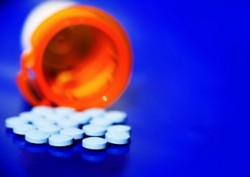
According to the Substance Abuse and Mental Health Services Administration,” With all classes of drugs of abuse, it has been shown that the likelihood of abuse is related to the ease of administration, the cost of the drug, and how fast the user experiences the desired results after the drug’s administration.” Using drugs for an intended medical purpose can result in dependency as easily for a patient as those who abuse certain drugs and when the motivating behaviors to use these drugs for their positive effects progresses to compulsive and uncontrollable abuse motivated by negative reinforcements, the cycle of addiction begins.
According to the NIDA, “addiction is not just “a disease of the brain,” but one in which the circuits that enable us to exert free will no longer function as they should.” Preventing relapse involves changes in attitudes and behaviors associated with drug use, recognizing and avoiding high risk situations, and developing coping skills to manage the stress. There are many internal and external “triggers” that would cause drug relapse and recovery can take a long time. It’s not easy; it can be a life-time struggle; and you will more than likely relapse at some point, but, let that be a learning event and not a sign of failure. The following are 5 potential causes for drug relapse.
1. Denying Your Vulnerability
Although the physical dependency can be overcome by remaining abstinent from the drugs over a period of time, advancements in neuroscience have identified a number of neurobiological factors that produce vulnerability to relapse in individuals with a history of addiction. Changes in the reward systems of the brain and the recruitment of stress motivators help to steer a person toward drug relapse despite any conscious efforts to do so and can begin long before the physical relapse occurs.
You may think you can handle resuming relationships with drug abusing associates, visit places where you once used, or assume that since you have accomplished a significant time in sobriety, you are cured, but, never deny your vulnerability to relapse. Influential factors to drug relapse can appear out of nowhere and you have to be actively on guard to protect yourself. Avoidance is recommended, but, if that is unfeasible, a strategic plan to cope with the influence without using is absolutely critical.
2. Stop Taking the Necessary Steps to Maintain Abstinence
As soon as you think you can control your addiction through sheer determination and stop taking the steps you need to maintain abstinence, you set yourself up for a drug relapse. 12-Step recovery groups such as Alcoholics Anonymous and Narcotics Anonymous are advocated sources to help you stay on track. The benefits of an encouraging and drug-free support network are more than attending meetings however, rebuilding relationships in your family and having the confidence to take care of yourself and your children goes a long way. Social breakdowns can lead to isolation, depression, and undue despair making it difficult to stay focused and motivated in your recovery goals.
3. Cravings
According to the Society for the Study of Addiction, “Craving is viewed as a core feature of substance use disorders and has been shown to predict future drug use.” Cravings can cause drug relapse even when there is no conscious desire to use the drugs. The brain becomes “hard-wired” to associate past use behaviors and the pleasing effects of the drugs with emotions, events, and thoughts that can cause cravings to project the person towards repeating the drug use behaviors based on their reward potentials.

Giving into cravings is an easy way to fall into relapse.
The more associated cues or reminders a person has, the more salient these behaviors become and the cravings for drugs will continue to occupy the mind until they are satisfied or forced to go away by an alternatively pleasing behavior. This is why so many people make the mistake of using another substance to satisfy their desire to feel better while avoiding use of the drug they actually crave and prefer. Unfortunately, once you lose your inhibitory responses through the use of other psychoactive substances, you are at a higher risk of relapse to that drug.
4. Idealizing Past Drug Use Experiences
Most addicts remember the times when the consequences of drug use were minimal or never existed at all. They may have had plenty of money, friends, and experiences where the use of the drugs continues to provide fond memories, but, over time in abstinence, a person who begins to idealize past drug use experiences and selectively disregards its consequences may be headed for a drug relapse.
Behaving like you used to, picking up the phone and calling those old friends, and ignoring the concerns that others may have for you and your recovery are forewarning signs of drug relapse and the beginnings of self-sabotage. Continuing down this path can lead to more frustrations when you don’t achieve certain recovery goals in an anticipated time or when you take on more than you can handle. At some point, you may begin to overreact to the cravings and stress and think that treatment was ineffective and that long term abstinence is a lost cause.
5. Neglecting Your Physical, Emotional, or Spiritual Health
Neglecting yourself physically, emotionally, and spiritually can cause drug relapse. Many people experience negative health effects from drugs that take a long time to heal and because one condition can exacerbate the condition of another, it is important to take care of your whole self. Some of the most common causes for drug relapse are the inability to control anger, anxiety, depression, insomnia, and fatigue or losing your hope. If drugs had the power to make you feel better before, the struggles you go through in recovery may seem reason enough to seek that relief again.


